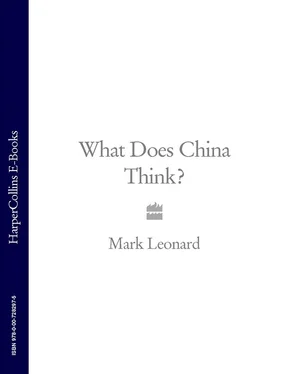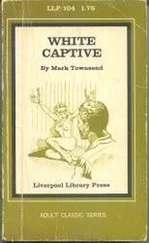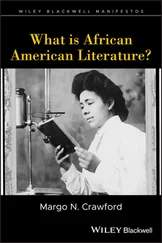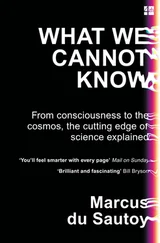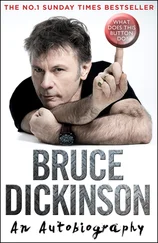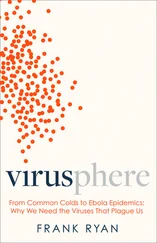However, the threat of further repression meant society’s discontent was muted. As Wang Hui says: ‘Just as people have forgotten the sound of social fragmentation echoing behind the excitement at Tiananmen, neither can people remember that the market era referred to today as “neoliberalism” is hiding behind the political spectres of those on the square and has only in this way secured an exemption from social protest against it.’ What he means is that the stodgy, bureaucratic face of the traditional Communist Party has masked the most extensive and ambitious process of marketization and privatization the world has ever seen. By referring to the market revolution as ‘socialism with Chinese characteristics’, the authorities were able to use quotes from Marx and Mao to repackage the ideas of Milton Friedman and Friedrich Hayek. For Wang Hui, the tanks that pulverized the hopeful intellectual flourishing of the 1980s were working on behalf of market fundamentalism rather than Maoism. Contrary to the view of the repression as a reassertion of Maoist ideology, the authoritarianism was acting to silence workers’ anxieties about inequality. This is Wang Hui’s version of the zebra story.
For Wang Hui, China’s last fifteen years have felt like a hallucination:
those who thought that the movement had speeded up the process of Chinese democratic development discovered that they had been abruptly dragged back into an era they thought was passing away – the old language, old patterns, old characters, old announcements, old faces that should have retired from the scene all took the stage once again. These old patterns created a hallucinatory effect, such that no one became conscious of the fact that the actual functionof the repressive measures was precisely to re-establish the links among market mechanisms that had begun to fail.
On the surface it looked as though the old guard was emphasizing its Communist ways, but in reality market forces were being pushed through with unprecedented speed. This created an ironic situation where right-wing economists like Zhang Weiying – who like to talk about the withering of the state – have, in fact, been the biggest beneficiaries of one-party rule. The Communists have faithfully implemented his ideas for reform, while silencing critical voices on the Left.
Zhang Weiying was not immediately sure how things would pan out so he left Beijing for Oxford University to study for a PhD under the Nobel Prize-winning professor James Mirrlees. By the time he returned to China in 1994, the breakneck pace of reform had resumed. The size of the non-state sector had grown exponentially and China was already overcoming the international opprobrium which its brutal suppression of the demonstrations had provoked. Zhang Weiying immediately returned to the action, dividing his time between the business, academic and policy worlds. As well as sitting on a number of government task-forces, he runs the prestigious Guanghua School of Management at Beijing University, and advises a dozen of the biggest firms in China. Since 1995 he has been the most cited economist in Chinese economic journals.
Wang Hui and the left-wing reformers had a tougher time in the 1990s. Numbed by the ferocity of the assault on the protesters, disorientated by the bizarre alliance of convenience between the Communist Party and the new capitalist elite, and depressed by a growing body of thought that believed that history was coming to an inevitable end, he and his colleagues went underground. They fell back on the three weapons that James Joyce had advocated against repression: ‘silence, exile, and cunning’.
The rise of China’s ‘New Left’
I met Wang Hui in ‘Thinker’s Café’, a bright and airy retreat with comfy sofas and fresh espressos that sits on top of one of Beijing’s largest bookshops. Within a stone’s throw of three of the country’s most prestigious universities – Tsinghua, Beida and Renmin – it reverberates to the sound of earnest intellectual chatter. Today’s Wang Hui has overcome his despair. He has the guise of an archetypal public intellectual: a thin man with cropped hair, wearing a brown jacket and a black polo-neck sweater. He loves discussing abstract notions like ‘enlightenment’, ‘teleology’ and the meaning of ‘modernity’. Neither his J.-P. Sartre chic nor his trendy theoretical discourse would be out of place on the Left Bank of Paris.
But Wang Hui has not lost his anger about China’s condition. He has managed to stand aloof from the commercial mainstream. Because he has not joined the party, he has no official positions (unlike Zhang Weiying, he is not the director of a university institute or department). For a decade he held an influential post as editor of Dushu – the leading intellectual journal in China – but it was taken away from him with very little notice in advance of the 17th Party Congress in 2007. Although he is a professor at Tsinghua University, Wang Hui has an uncomfortable relationship with the authorities: writing reports exposing local corruption and helping workers organize themselves against illegal privatizations. He often uses the media to put the spotlight on government failings.
Wang Hui is one of the leaders of the ‘New Left’, a loose grouping of intellectuals that is increasingly capturing the public mood, and setting the tone for political debate. They are ‘new’ because unlike the ‘old left’ they support market reforms. They are Left, because unlike the ‘New Right’ they worry about inequality. Many sought exile in the USA in the 1990s, but now they are back to join the debate about China’s future. In an interview, Wang Hui set out their stall: ‘China is caught between the two extremes of misguided socialism and crony capitalism, and suffering from the worst elements of both systems … I am generally in favor of orienting the country toward market reforms, but China’s development must be more equal, more balanced. We must not give total priority to GDP growth to the exclusion of worker’s rights and the environment.’
Their philosophy is a product of China’s relative affluence. Now that the market is driving economic growth, they ask what should be done with the wealth. Should it continue accumulating in the hands of a privileged elite or can China foster a model of development that benefits all its citizens? Thirty years into China’s reform process they are challenging the philosophy of growth as the ultimate goal: instead of hurtling towards nineteenth-century laissez-faire capitalism, they want to develop a Chinese variant of social democracy. And while, like magpies, they adapt ideas from all over the world to Chinese conditions, they feel that China’s development should be built on Beijing’s terms. As Wang Hui says:
We cannot count on a state on the German or Nordic model. We have such a large country that the state apparatus would have to be vast to provide that kind of welfare. That is why we need institutional innovation. Wang Shaoguang [a political economist] is talking about low-price health-care. Cui Zhiyuan [a political theorist] is talking about socialized capital and reforming property rights to give workers a say over the companies where they work. Hu Angang [an economist] is talking about Green development.
Their goal is to challenge the imported ideas of ‘Pearl River Capitalism’ and replace them with a home-grown philosophy: ‘We have to find an alternate way. This is the great mission of our generation.’ And as the list of problems arising from the market grows almost as long as the many achievements, the senior leadership is taking note of their ideas. They are beginning to feel that their time has come.
Henan literally means ‘South of the River’, because of its location on the banks of the Yellow River. This is the heart of inland China, the spiritual opposite of Shenzhen. Traditionally regarded as the birthplace of Chinese civilization, it is also home to a village that became the poster boy of the ‘New Left’ in the 1990s: Nanjie. In a deliberate experiment, Nanjie’s leaders created a synthesis of the market and collectivism, as they abandoned their agricultural heritage to embrace industrialization (the authorities built twenty-six factories making everything from instant noodles to plastic wrappers). Village life in Nanjie is resonant of nineteenth-century experiments in ethical capitalism such as Robert Owen’s New Lanark in Britain. The workers are paid above average wages and everyone is given free housing, free healthcare, rations of meat and eggs, and a daily bottle of beer. Primary and even college education is subsidized. The authorities look after the moral welfare of their citizens, not with religious sermons as in New Lanark, but through compulsory study-sessions of Mao’s philosophy and regular ‘criticism and self-criticism’ of each other’s behaviour. In 1996, the village was immortalized in a glowing book by the ‘New Left’ political theorist Cui Zhiyuan.
Читать дальше
